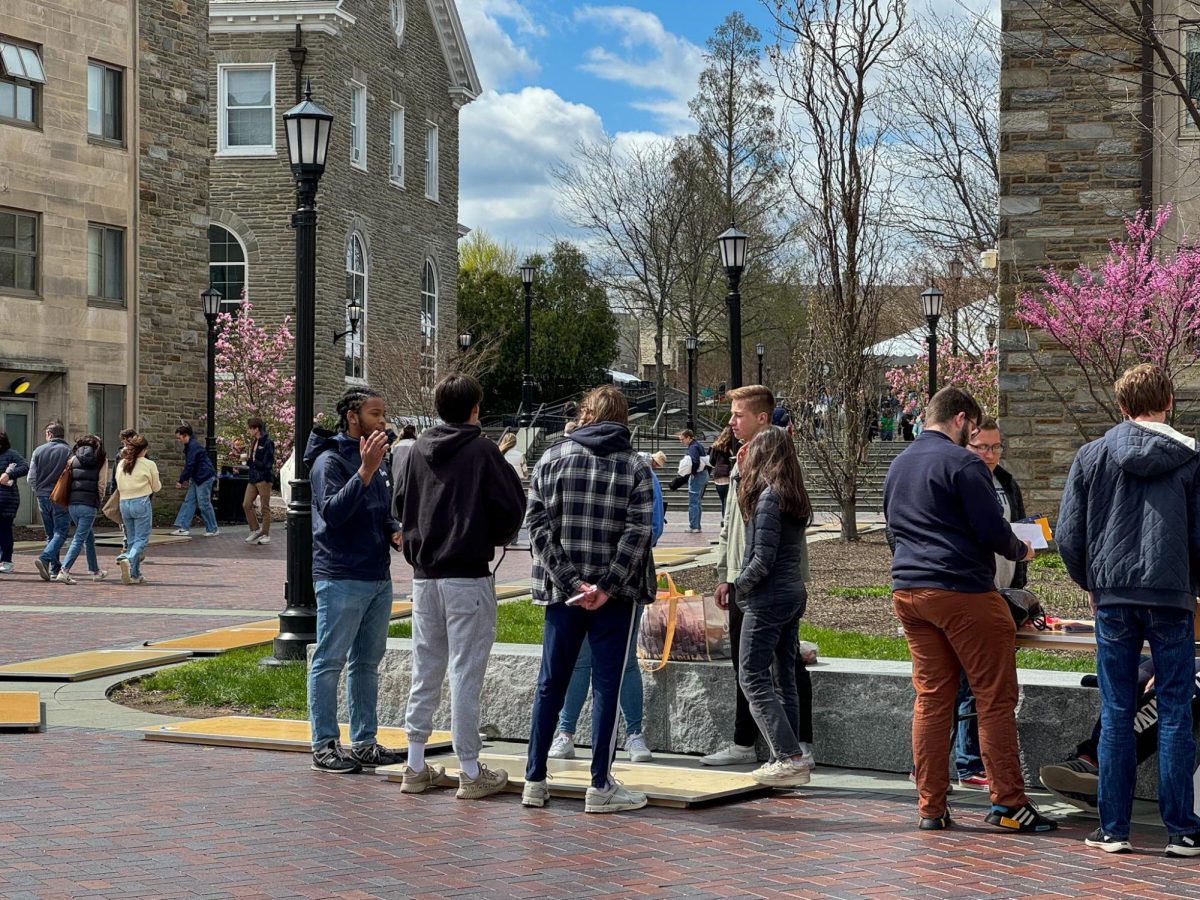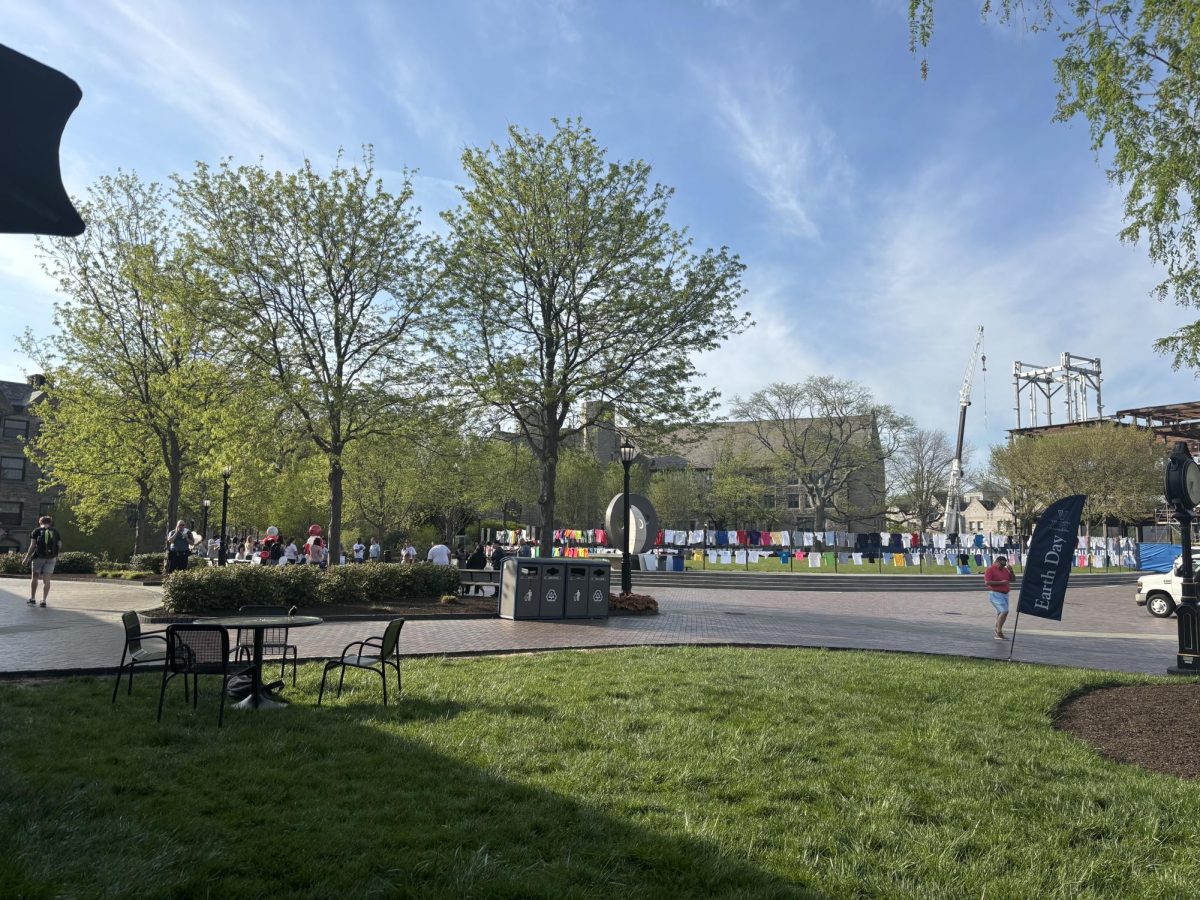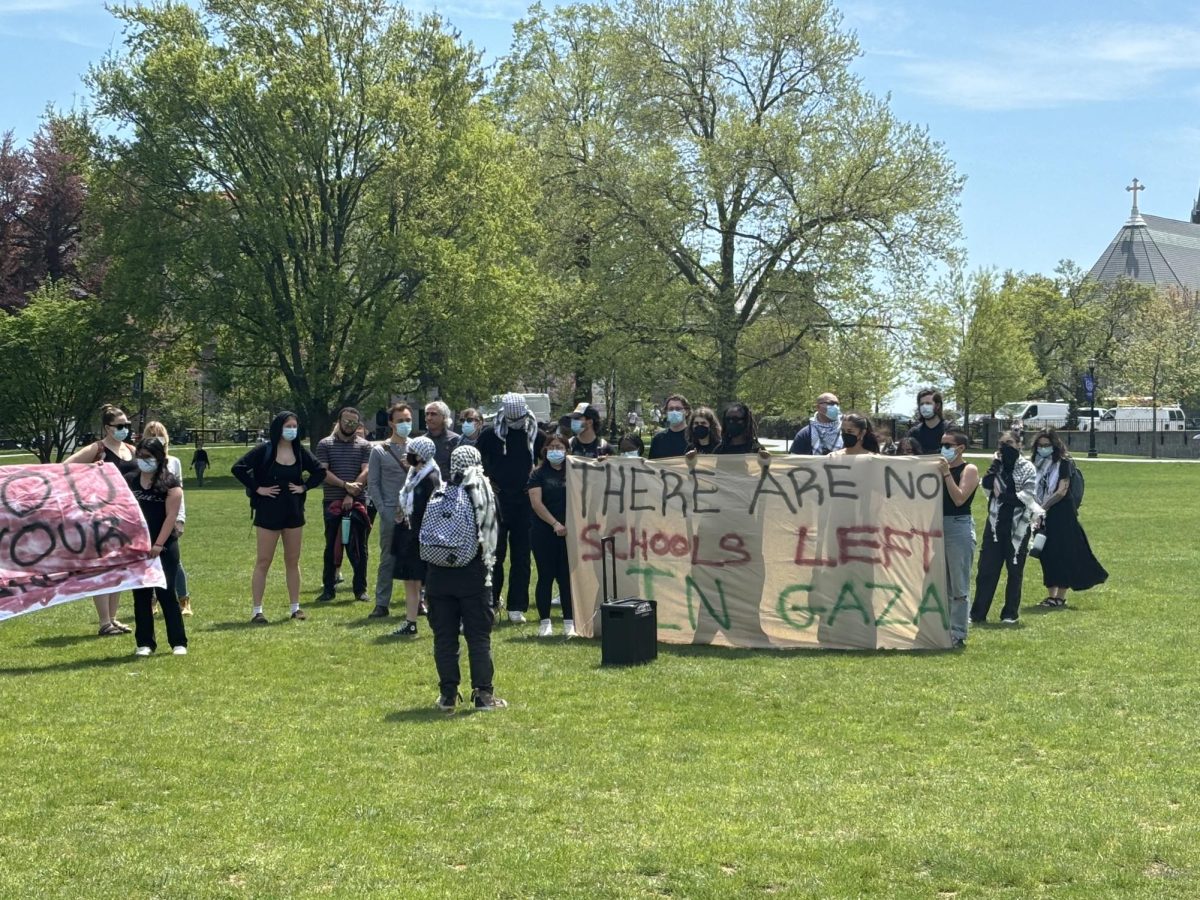Last Tuesday, the Villanova Philly Justice Project (PJP) hosted a panel about wrongful convictions in the Philadelphia area in Garey Hall. The goal of the panel was to help educate students on how wrongful conviction cases are handled and addressing the stigma surrounding convicts.
They had three women who work in the area all on zoom to answer questions from the Justice Project, as well as from the students attending.
Jianing Xie is an attorney at the Federal Community Defender Office and represents people on death row.
“Wrongful convictions, to me, include anything that’s unfair, including unfair sentencing,” Xie said when asked about what a wrongful conviction is.
She gave more detail of the type of people she works with.
“We are working with women who weren’t necessarily innocent, but maybe had been over sentenced,” she said.
Melissa Bluestine, Assistant Director of the Quattrone Center for the Fair Administration of Justice and the University of Pennsylvania Carey Law School, spoke on how bias is often the biggest contributor to stigma, although most of it is unintentional.
“Everything that we talk about has to do with bias, it’s not bias with a big ‘B’ and anything where you do it intentionally it’s kind of how we move through the world. In order to make sense of the world we have lots of kinds of confirmatory bias that we have to go by,” Bluestine said.
Bluestine also spoke on how society treats former convicts.
“We as a community need to be much better of reintegrating, we have to trust that if you have committed a crime and been punished for that, you’re back out and are now part of society again and that’s on us, to really do work to overcome our biases against people who have been in prison,” Bluestine said.
“They have this stigma quite literally following them the rest of their life,” Patrice Beardon, Director of the Conviction Review/Cold Case Unit of the Office of Public Integrity and Accountability, said. “They have to report to a parole officer, they have to be drug tested, where they can only live in certain places, and people can look their name up and see they are a registered offender, and what jobs they are going to be eligible for.”
Beardon, who previously served as a public defender in Monmouth County, hopes that just by simply having the hard conversations surrounding wrongful convictions, can lead to change.
“The conversations we are having today, I would be willing to bet will affect other conversations you’re having with people outside of this room, because to be a part of something like this you obviously have an interest in it, and you’ll read more about it and believe in it. And that becomes a domino effect,” Beardon said.
One of the bigger conversations throughout the panel was the problems within the system of Philadelphia and Pennsylvania as a whole, specifically Xie, spoke about the strict sentencing that we have here in the state of Pennsylvania.
“Pennsylvania has the, I’m pretty sure, one of the strictest murder sentencing structures in the U.S. so for first degree murder the possible sentences are life or death, and that’s life without parole… there is very little flexibility,” Xie said.
Xie, who specializes in death row cases, spoke on how strictly unfair the minimum sentencing is in Pennsylvania compared to other states.
“I think there is a lot a lot of work to be done in Pennsylvania to address the big high sentences,” Xie said. “In comparison, [in] Illinois the punishment starts at 20 years, so that person still could have a second chance at life after that conviction where in Pennsylvania that would not even be an option.”
Bluestine also has a lot of experience in not just Pennsylvania, but Philadelphia specifically. She has previously worked exclusively in criminal defense as an Assistant Defender in Philadelphia and also was Executive Director of the Pennsylvania Innocence Project for more than seven years.
“The challenges of Philly prosecutes around 40 to 50,000 people a year in the criminal legal system, it’s just such a large number of cases coming through… it takes years to get a case put out,” Bluestine said.
On top of that, she noted that there are simply not enough qualified people working within the system which causes slowed trials and mistakes.
“I say this quite confident, that in terms of gathering the evidence and looking through the files and finding the witnesses and testing the evidence and doing everything you possibly can to be able to prove someone was innocent, which is proving a negative, so it’s incredibly hard to begin with, and plus all the laws are written to catch a conviction not challenge it,” Bluestine said. “So it’s incredibly challenging work. What do they need? They need more people doing it, they need more people who are qualified, more lawyers who know what they are doing.”
Overall, all three women agreed that there is a strong amount of bias and stigma surrounding wrongful convictions and former convicts, as well, especially in the Philadelphia area.






